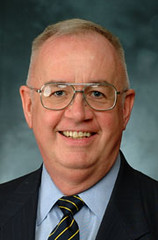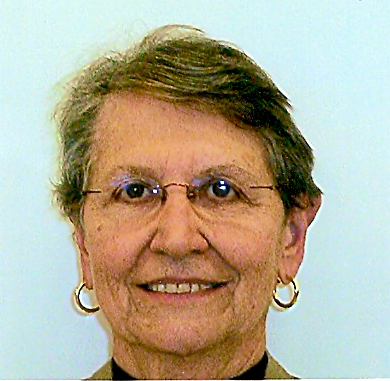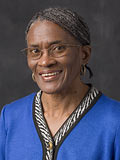I found a Literature book which I had "borrowed" from my mother's extensive home library. I looked through it and found one of Tennessee Williams’ plays, "The Glass Menagerie." Since it was almost to bedtime for my children, I decided to read it to them. After reading the background information on the characters and the production notes, I began to read scene one. Tom's narration was very interesting. Tom provided important information on the characters. The first part of the scene was very funny. Tom became upset with his mother because she often chastised him about his eating habits. He leaves the dining to smoke as cigarette. Then I read, "No, sister, no, sister - you be the lady this time and I'll be the darky" (Knickerbocker 707). I had to stop. The word, "darky," hit me like a whirlwind. Does Tennessee's Williams avoid using the "N" word to deviate from controversy? If "darky" was deleted, would scene one in the play still have the same meaning? Reading on, I understood the message he was trying to deliver. He wanted the viewer to see the mother's desire to teach Laura how to be waited on instead being the server.
Being a part of the writing institute has transformed my ability to read derogatory words and to see the author’s underlining meaning. It has been a wonderful experience to discuss rather touchy subjects, like racism, in an intellectually stimulating situation. Our monthly discussions have been fundamental in my own ability to interpret what I read and the message the author is trying to portray.
Works Cited
Knickerbocker, K. L. and Reniner, H. Williard. "The Glass Menagerie." Interpreting Literature. New York: Henry Holt and Company, 1955.
Thursday, February 26, 2009
Saturday, February 21, 2009
Facebook and 4Ws

I have created a page for the 4Ws Writing Institute on Facebook. Please support the Writing Institute Facebook page by becoming a fan! I created the page to provide universal exposure for the program. I have enjoyed being a participant in this program, and I want to share my experience with others. Look forward to seeing you online at Facebook!
Friday, February 20, 2009
Haiku Friday!

#730
From the cherry tree
To the roof of the red barn,
A cloud of sparrows flew.
Haiku: This Other World by Richard Wright (Arcade, 1998)
Acrylic by Mississippian Rick Anderson titled Red House. ~Maggie
Wednesday, February 18, 2009
4Ws Flickr
I have created a slideshow using the photos from this past week's discussion. Remember to post your photos from previous trips and discussions to our Flickr group. Here is a link to our group.
Exposure to Tennessee Williams

Our past discussion on Tennessee Williams was informative, entertaining, and intriguing. Dr. Kullman enticed us with humor and managed to keep a very interactive discussion going, even though it was "The Love Holiday." I really enjoyed the handouts. He provided so much information to use in the classroom. From images of important landmarks used in Tennessee Williams to frequent themes in his plays, we left with an abundance of information to create essay assignments and to encourage classroom discussions. I am looking forward to our next meeting in Clarksdale, MS.
Monday, February 16, 2009
I'd Love to Hear...
 During discussion Saturday, I mentioned plays being used as entry points for reluctant readers. My Book Talk column for the previous week talked about that very thing. I am not an educator and wrote the piece from my own experience, but would love feed back from teachers. I would like to know if this is a practical idea or do I need to go back and rethink the article. The article is passed rescission though. Please leave a comment here or click the words Book Talk and leave one there. ~ Maggie
During discussion Saturday, I mentioned plays being used as entry points for reluctant readers. My Book Talk column for the previous week talked about that very thing. I am not an educator and wrote the piece from my own experience, but would love feed back from teachers. I would like to know if this is a practical idea or do I need to go back and rethink the article. The article is passed rescission though. Please leave a comment here or click the words Book Talk and leave one there. ~ Maggie
Friday, February 13, 2009
Haiku Friday!

#97
In the setting sun,
Each tree bud is clinging fast
To drying raindrops.
Haiku: This Other World by Richard Wright (Arcade, 1998)
Mixed media collage by Texan Cheryl McClure titled The Rain Came. ~ Maggie
Tuesday, February 10, 2009
Let's discuss...
The following questions were developed by Dr. Jerry Ward for the short story Down by the Riverside by Richard Wright. ~ Maggie

1. What is the moral conundrum in this story?
2. Does the story seem to have unusual significance if we compare reactions to the Mississippi River flood of 1927 with those evidenced in the aftermath of Hurricanes Katrina and Rita and the breaking of the levees in New Orleans in 2005?
3. Why are the military officials so insensitive to Mann's grief over the death of his wife? Why is Mann addressed as “boy”?
4. Why does Mann rescue Mrs. Heartfield and her two children when he knows they will identify him as the person who murdered Mr. Heartfield?
5. Why does Mann decide to die before the agents of justice can kill him? What is the significant difference between his decision and the one Silas makes in Long Black Song?

1. What is the moral conundrum in this story?
2. Does the story seem to have unusual significance if we compare reactions to the Mississippi River flood of 1927 with those evidenced in the aftermath of Hurricanes Katrina and Rita and the breaking of the levees in New Orleans in 2005?
3. Why are the military officials so insensitive to Mann's grief over the death of his wife? Why is Mann addressed as “boy”?
4. Why does Mann rescue Mrs. Heartfield and her two children when he knows they will identify him as the person who murdered Mr. Heartfield?
5. Why does Mann decide to die before the agents of justice can kill him? What is the significant difference between his decision and the one Silas makes in Long Black Song?
Monday, February 9, 2009
20th ANNUAL
NATCHEZ LITERARY & CINEMA CELEBRATION
NATCHEZ LITERARY & CINEMA CELEBRATION
Natchez, Mississippi
FEBRUARY 19-22, 2009
"Southern Women Writers:
Saluting the Eudora Welty Centennial"
FEBRUARY 19-22, 2009
"Southern Women Writers:
Saluting the Eudora Welty Centennial"
Conference co-sponsors:
Copiah-Lincoln Community College,
Natchez National Historical Park,
Mississippi Department of Archives and History,
and Mississippi Public Broadcasting
Co-chairmen:
Carolyn Vance Smith, Kathleen Jenkins,
Carolyn Vance Smith, Kathleen Jenkins,
Jim Barnett, and Marie Antoon
Director of Proceedings: William F. Winter
Director of Proceedings: William F. Winter
ABOUT THE CELEBRATION…
The Natchez Literary and Cinema Celebration, winner of an Olympic Award, the Governor’s Award, and the Mississippi Tourism Award, has been called by official evaluators “Mississippi’s most significant annual conference devoted to literature, history, and culture.”
Sponsored by Copiah-Lincoln Community College, Natchez National Historical Park, Mississippi Department of Archives and History, and Mississippi Public Broadcasting, the Celebration annually presents a theme-based lecture series enhanced by films, field trips, workshops, exhibits, book signings, and discussions.
Each year since the NLCC began in 1990, the conference has been made possible in part by the Mississippi Humanities Council under a grant from the National Endowment for the Humanities.
The conference is also made possible in part by a $100,000 National Endowment for the Humanities Challenge Grant that was successfully matched dollar-for-dollar during a three-year campaign that ended in 2006.
For information about Natchez and where to stay, visit:
Natchez Convention and Visitor Bureau
Other Natchez sites to visit:
http://www.visitnatchez.com/
http://www.rosaliemansion.com/
http://www.natchezchamber.com/
For questions and or ticket orders call
toll-free 1-866-296-NLCC (1-866-296-6522) or e-mail info.
~ Maggie
Sunday, February 8, 2009
Let's Discuss...
The following questions were developed by Dr. Jerry Ward for the short story Big Boy Leaves Home by Richard Wright. ~ Maggie

1.) The story opens with four black boys engaged in the banter known as “the dozens.” Why does Wright begin the story with a ritual involving verbal insults?
2.) How does Wright use a classic taboo regarding contact between blacks and whites to activate tragic events in the plot?
3.) What are the justifications for the soldier’s killing of Lester and Buck? For Big Boy’s killing the soldier? What point does Wright wish to make about justice and inequality? About justice and power?
4.) How does Wright use the themes of innocence and guilt in the story?
5.) Note the pastoral setting in which violence initially occurs. What do other acts of violence in the story lead us to conclude about the nature of violence? About the nature of the community wherein it occurs?
6.) Is Big Boy’s witnessing of the lynching of Bobo a part of his education?
7.) How important are issues of migration and displacement in the story? Why does Big Boy flee to Chicago rather than to another part of the United States?

1.) The story opens with four black boys engaged in the banter known as “the dozens.” Why does Wright begin the story with a ritual involving verbal insults?
2.) How does Wright use a classic taboo regarding contact between blacks and whites to activate tragic events in the plot?
3.) What are the justifications for the soldier’s killing of Lester and Buck? For Big Boy’s killing the soldier? What point does Wright wish to make about justice and inequality? About justice and power?
4.) How does Wright use the themes of innocence and guilt in the story?
5.) Note the pastoral setting in which violence initially occurs. What do other acts of violence in the story lead us to conclude about the nature of violence? About the nature of the community wherein it occurs?
6.) Is Big Boy’s witnessing of the lynching of Bobo a part of his education?
7.) How important are issues of migration and displacement in the story? Why does Big Boy flee to Chicago rather than to another part of the United States?
Saturday, February 7, 2009
Pic Disposable Cameras!
 Now through Feb. 16, 2009 people can view the photographic art of Eudora Welty at the Museum of the City of New York! The exhibit is titled Eudora Welty in New York: Photographs of the Early 1930s and includes her pics taken while living in the city. Afterwards the exhibit will be packed up and shipped back to Mississippi for a showing at the Welty House.
Now through Feb. 16, 2009 people can view the photographic art of Eudora Welty at the Museum of the City of New York! The exhibit is titled Eudora Welty in New York: Photographs of the Early 1930s and includes her pics taken while living in the city. Afterwards the exhibit will be packed up and shipped back to Mississippi for a showing at the Welty House.Dr. Prenshaw shared an article she found in The New York Times promoting the exhibit titled "Portraits Taken by a Writer as a Young Woman (in Hard Times)" by Karen Rosenberg.
As a fun classroom assignment, purchase disposable cameras in bulk and let students document a week in their lives for an end-of-the-year exhibit. Teachers may want to lead them by showing Eudora Welty's work and introducing a theme before they start clicking such as My Mississippi or A Day in the Life. How about giving them black and white Kodaks for a back-in-the-day feel? ~Maggie
Copyright information - [Untitled. Front Stoops], 1935-1936 Modern gelatin silver print from the original negative (c) Eudora Welty, LLC; Eudora Welty Collection - Mississippi Department of Archives and History. ~ Maggie
Friday, February 6, 2009
Haiku Friday!
 #334
#334 A lakeshore circus:
An elephant trumpeting
Waves on blue water.
Haiku: This Other World by Richard Wright (Arcade, 1998)
The photograph is taken by Koos Badenhorst. ~ Maggie
Tuesday, February 3, 2009
The Fifth W!
 Rick Bragg, author, journalist and longtime admirer of Willie Morris, will speak TODAY on "Willie’s Humor" from 5-6:30 at the Willie Morris Library, 4912 Old Canton Road in Jackson. The program is part of a series "Willie Morris: The Man and His Words," sponsored by Jackson Friends of the Library.
Rick Bragg, author, journalist and longtime admirer of Willie Morris, will speak TODAY on "Willie’s Humor" from 5-6:30 at the Willie Morris Library, 4912 Old Canton Road in Jackson. The program is part of a series "Willie Morris: The Man and His Words," sponsored by Jackson Friends of the Library.For several years Bragg was national correspondent for The New York Times. In 1996, he was awarded the Pulitzer Prize for feature writing, which the judges called "elegantly written stories on contemporary America." He has received the American Society of Newspaper Editor’s Distinguished writing award, and over 40 other journalism awards.
Among other books, he has published three family memoirs: All Over But the Shouting (1999), Ava’s Man (2002) and Prince of Frogtown (2008).
He has conducted writing workshops all over the country and currently teaches writing at the University of Alabama in Tuscaloosa.
This event is free and open to the public. Light refreshments will be served. For more information, call 601-352-1312. ~ Sheila Bonner
Sunday, February 1, 2009
Cat on a Hot Tin Roof
Here are a list of resources to discuss Cat on a Hot Tin Roof in the classroom.
Subscribe to:
Comments (Atom)










